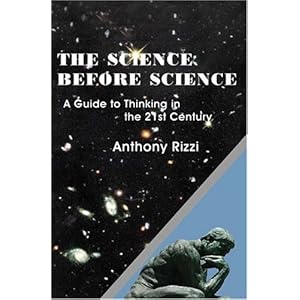 In The Science Before Science (IAP Press, 2004), Anthony Rizzi explains (p. 263),
In The Science Before Science (IAP Press, 2004), Anthony Rizzi explains (p. 263),
Science texts, scientists, and others constantly attribute this axiom to Occam (Ockham). It is curious that William of Ockham (1285-1349), who lived after St. Thomas (1225-1274) and, of course, after Aristotle (384-322 BC) who also used the axiom) is credited with this axiom.
The odd nature of this attribution is accentuated when one considers that Ockham was a nominalist and an occasionalist (i.e. believed that secondary causes were an illusion, not real; he thinks that God continually works miracles to make the world look like it is).
Nominalism makes science a useless enterprise, because it denies that things have an essence; in short, the question “What is it?”has no meaning for them. This belief undermines emperiometric science as well, because without essences, even the quantitative relations that we give can only be figments of our minds, not reflective of reality.